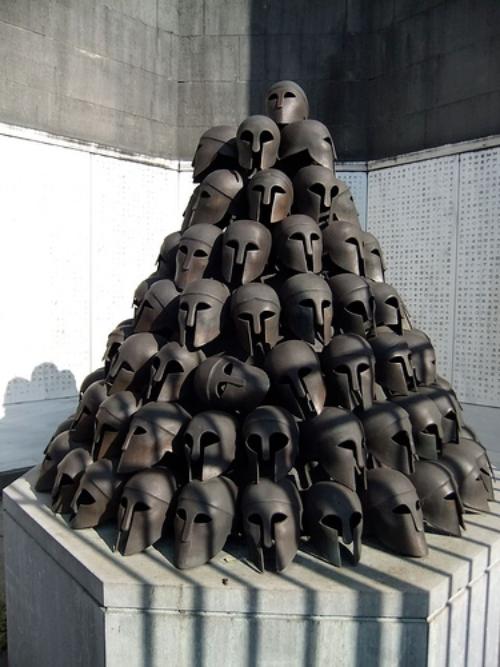Thucydides: reception, reinterpretation and influence
The Athenian historian Thucydides (c.460-c.395 BCE) claimed that his account of the Peloponnesian War would be ‘a possession for ever,’ valued by posterity more than by his contemporaries.
The history of his text's reception since the Renaissance has proved him entirely correct; not only has his work continued to be read, by historians, political thinkers, philosophers, international relations theorists and many others, but Thucydides himself has been seen as ever more prescient and modern.
Since the Second World War, for example, Thucydides has been one of the most frequently cited thinkers in debates about western foreign policy and military intervention, especially in the United States. The lessons which Thucydides drew from his analysis of the war between Athens and Sparta are seen as timeless reflections of the nature of war and inter-state relations. Similarly, the development of modern ideas of ‘history as science’ in the nineteenth century did not lead to the rejection of his work as out-moded, but to his enthronement as the first modern historian, an inspiration and a model for all historians. Debates about the future direction of history focused on Thucydides; all sides accepted his authority and status as modern before his time, and sought to claim him in support of their own ideas.
The idea of Thucydides and his work thus had and has enormous power, shaping modern ideas about how to understand the world and serving to legitimise them. However, there is considerable scope for debate about the relationship between this idealised Thucydides and the reality; it is clear that some references to him are based on naïve, partial and dehistoricised readings of his work, or of a few isolated passages in it.
Further, Thucydides has appeared in completely contradictory roles: as mythographer and rhetorician as well as scientific historian; as the perfectly objective observer of society, and as the model for a politically engaged scholar; as both democrat and oligarch, realist and idealist.
This project began as a series of three research workshops organised by Professor Neville Morley to explore different facets of Thucydides' reception in history, political theory and international relations; this then formed the basis for a four-year research project, funded by the Arts & Humanities Research Council, to examine how knowledge and understanding of his work has developed within different national traditions and different disciplines since the Renaissance, including Prof. Morley's work on Thucydides and modern historiography. The next phase, involving a closer collaboration with academics at the Freie Universitaet Berlin, will focus on Thucydides' place in political theory and other areas of the social sciences: not just the way his work has been received and interpreted, but the light this sheds on the uses of the past in social science, and the ways in which Thucydides' work offers a template for engaging with and understanding the modern world.

